‘PCOS affects 1 in 10 women in the UK,’ and 50% of women with PCOS are undiagnosed.
Polycystic ovary syndrome is a long-term condition that many women have to manage. There is currently no cure, and it can affect everyday life, from weight gain, and acne, to fertility problems.
It’s diagnosed in some women when they hit puberty, sometimes as early as 11-12 years old, when they have trouble with their menstrual cycle. However, many people don’t discover they have PCOS until they are in their 20s and 30s. If you’re someone living with PCOS or want to learn more about it, this article tells you what it is and how to manage it in everyday life.
What is PCOS?
PCOS stands for Polycystic Ovary Syndrome, caused by a disruption in reproductive hormones (typically androgen, a male sex hormone). Although every woman contains some androgen, those with PCOS have an excessive amount.
The syndrome creates cysts (up to 8mm) around the ovaries, which contain undeveloped eggs called follicles. When someone has PCOS these eggs do not consistently release into the womb for fertilisation.
Typically, when a woman does not fall pregnant, the body sheds unfertilised eggs during menstruation. However, this does not happen with PCOS. Instead, the eggs rarely or never drop, so the body doesn’t stimulate a period. It’s a condition that women have to manage their entire lives, even after menopause.
What Causes PCOS?
The extra amount of androgen hormone may cause PCOS, although an abnormal level of androgens is not always present in PCOS. Research shows a link between genetics (as it can run in families) and environmental factors that may trigger polycystic ovary syndrome.
What are the Symptoms of PCOS?
Appearance
-
- Acne – Any spots on the body are called acne. However, women with polycystic ovary syndrome may suffer worse than others.
- Excessive hair growth – An excess amount of the male hormone androgen means ‘male-type’ hair growth may occur, for example, on the chin, upper lip, and back.
- Weight gain and retention – Insulin resistance (the cause of type 2 diabetes) also leads to weight gain as sugar builds up in the bloodstream. There is also a disruption in the hormones that signal to the body when it is hungry or full, which can lead to overeating.
Women who struggle with obesity have more aggravated symptoms of PCOS, such as increased acne, hair growth, and dysregulated periods.
Mental
- Depression – The constant imbalance of hormones can cause severe mood swings and trigger depression.
Physical
-
- Disrupted thyroid function – An underactive thyroid or hypothyroid is when your thyroid does not produce enough essential hormones. This can lead to weight gain and further affect fertility levels. You can test your thyroid function to see if you need treatment.
- Heart issues – PCOS can disrupt blood pressure regulation and may lead to heart disease or increase the risk of heart conditions.

-
- Higher risk of endometrial cancer – Women with PCOS who have highly irregular periods or no periods have an increased chance of developing cancer in the uterus lining (also known as endometrial cancer).
- However, the risk of developing cancer is low, and you can reduce the risk by taking medications that assist with maintaining regular periods.
- Infertility or difficulty getting pregnant – Because eggs do not get released at a standard rate or are immature when they are, it can be hard to get pregnant. Extreme cases also lead to infertility. Read more about increasing your chances of fertility.
- Irregular periods – PCOS means the uterus does not need to shed its lining as much due to eggs not dropping into the womb. Therefore, some women with PCOS may go for months without a period or have a period that does not stop for days.
-
- Sleep apnoea – Women with PCOS are more likely to develop sleep apnoea – a disorder when the body temporarily stops breathing during sleep.
- Type 2 diabetes – The condition can cause insulin resistance, which affects 85% of women with PCOS. This means the body cannot effectively absorb insulin to balance blood sugar levels, leading to diabetes. Women above a healthy weight have a 20% increase in insulin resistance. Therefore, losing weight is beneficial to decrease insulin levels. You can read more about Type 2 diabetes here.
If you have concerns that your PCOS may cause diabetes take our Diabetes (HbA1C) Blood Test.
How to Manage PCOS
Acne Treatment
Seeing a dermatologist to manage acne can help with self-esteem and confidence. Your doctor may prescribe strong creams that can have side effects, but a contraceptive pill is also a good option as it reduces androgen levels that can aggravate acne.
Hair Removal
A common symptom of PCOS is excess hair growth on body parts that don’t usually develop in women. For example, the face, back, and chest. Although this does not affect everyone with polycystic ovary syndrome, it can cause self-esteem issues in others.
An effective treatment is hair removal, such as laser therapy, electrolysis, waxing, or regular shaving. Laser and electrolysis hair removal is the best long-term treatment to reduce the rate of hair regrowing or even stop regrowth completely.
Maintaining a Healthy Weight

PCOS can cause easy weight gain, so keeping a healthy weight can be difficult. However, you can improve by eating well and exercising regularly. Just a 5% weight loss can still make a difference to PCOS to enhance fertility, regulate the menstrual cycle, and reduce body hair and acne.
Medication
-
- The contraceptive pill – Birth control pills are commonly used to manage polycystic ovary syndrome because they can minimise the symptoms. This is because some contraceptive pills have progestin and estrogen, which balance excessive androgen.
- Injections – Gonadotropins is a hormone injection women with PCOS can take to regulate the hormones from androgens or thyroid imbalance.
- Medication for type 2 diabetes – Taking a medication called metformin reduces insulin levels in the blood to either help manage diabetes or slow down the potential of it developing.
- Progestin therapy – This replaces hormones deregulated in women with PCOS to defend them against developing endometrial cancer.
Staying Active
Moving your body consistently helps with blood flow, which is critical if you are at risk of diabetes. It enables the heart to develop stronger muscles to pump blood around the body, which may otherwise struggle to circulate due to the build-up of insulin.
Healthy Diet
Foods that improve blood flow will help your body shift the excess weight that the body gains from insulin resistance. Great choices include spinach, broccoli, kale, sweet potato, and berries.
Therapy
Due to the mood swings from PCOS, which can cause depression, sometimes therapy is an excellent way to learn how to manage mental health effectively.
30% of people with long-term conditions struggle with anxiety and depression. Therefore, therapy is a good way to talk about what you are going through with PCOS so you can learn to be kind to yourself and navigate the condition.
Vitamins and Supplements

Getting enough nutrients through diet alone can prove difficult, especially when it comes to vitamin D. Women with PCOS need to live a healthy lifestyle. Therefore, taking supplements may provide an extra nutritional boost. However, it’s also essential to learn how not to overdo supplements.
Take a Vitamins Blood Test to check your levels are healthy.
Learn about PCOS
It’s not uncommon for women to get a PCOS diagnosis from a doctor and then leave without any information about the condition or how to manage it. Reading books and articles and generally learning about the syndrome can help people better understand what they need to do to treat it.
Joining a PCOS Community
Dealing with a long-term health condition can feel isolating. However, support groups exist to help women who may be struggling with PCOS. Talking about people who relate to your situation can build a sense of connection and help you feel less alone. Facebook community groups and regular meet-ups with women with PCOS can help people manage the condition together.
PCOS is a Manageable Condition
Although it may feel daunting, you are not alone if you struggle with the diagnosis of polycystic ovary syndrome. You need to consider many factors to manage it healthily, such as lifestyle and medication. However, with treatment, you can live a normal life and minimise PCOS symptoms.
Take a Polycystic Ovary Syndrome Blood Test Today.
If You Found This Article Useful, You May Also Like:
- Women’s Fertility: Everything You Need to Know
- How to Test Your Thyroid Function
- Should You Go on a Vegan Diet?
Written by Emma Carey. Emma is a health and wellness enthusiast who likes to know the science behind how supplements, vitamins, nutrition and exercise affect the body. She’s on a health and fitness journey to improve her lifestyle and live life to its fullest.
FAQs
What does PCOS do to a woman?
When a woman with PCOS hits puberty and starts their menstrual cycle, there is an excess release of the male sex hormone androgen. This dysregulates the reproduction system as cysts develop on immature eggs, causing a disruption in a woman’s period and reducing fertility.
How do you know if you have PCOS?
Signs that you may have PCOS include excess hair growth in places that don’t typically grow on a woman, for instance, the face, chest and back. Acne, gaining weight easily, irregular periods or no periods, and chronic conditions such as type 2 diabetes.
What is the main cause of PCOS?
It’s not yet known what causes PCOS, although research indicates it may be genetics (polycystic ovary syndrome often runs in families) and environmental factors. However, researchers are yet to isolate the exact cause and currently, there is no cure.

